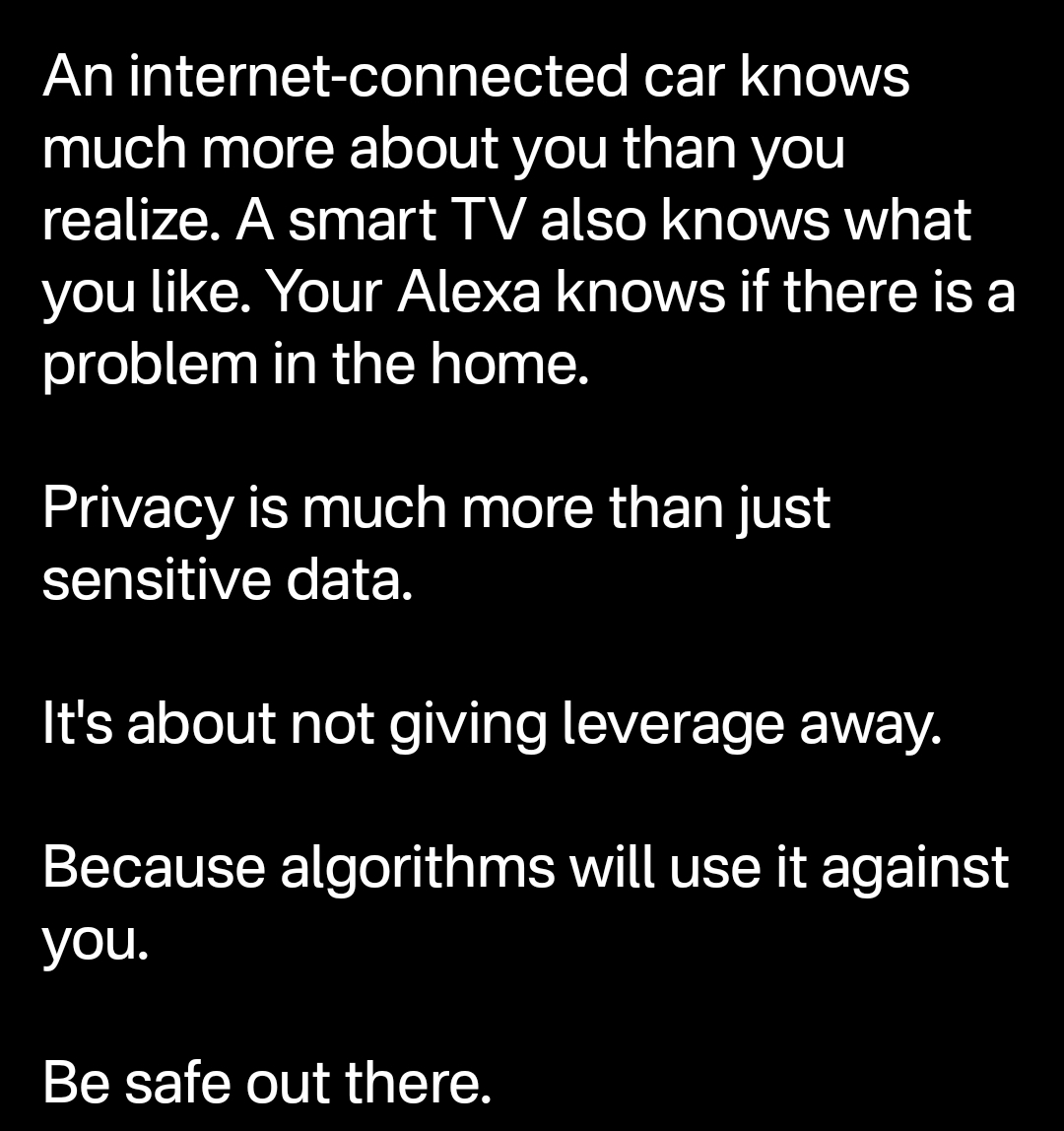
post text
Picture this:
- You type on Google “laptop won’t turn on”
- Google now knows you have a broken laptop and can estimate how desperate you are to fix it.
- Because it knows how desperate you are, it can increase shop prices proportionally.
You are going to pay the maximum they get you to pay.
That’s algorithmic pricing.
The more companies know about you, the more they can predict and sell how desperate you are to other stores out there.
An internet-connected car knows much more about you than you realize. A smart TV also knows what you like. Your Alexa knows if there is a problem in the home.
Privacy is much more than just sensitive data.
It’s about not giving leverage away.
Because algorithms will use it against you.
Be safe out there.

All the metadata perhaps (still very valuable), but client-side, zero-access encryption means it’s encrypted before it hits the servers. So while a data leak might, for example, show who, when, and how much you’re emailing, it wouldn’t show the content of the email as gmail would.
Moving in the direction of better and voting with your dollars is an important step away from already enshittified structures, which I’d argue, are inherent to certain models and not others. EG: a self hosted, open source software developed by a non-profit could sell and incorporate and enshittify, but the possibility of forking is an effective disincentive that could easily eat projected gains.